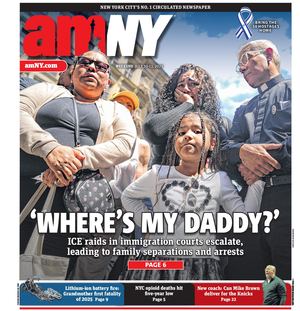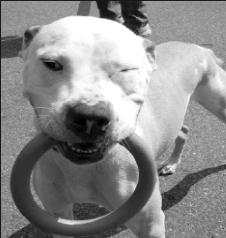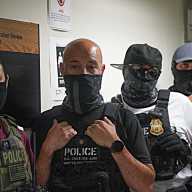By Rita Wu
Backing down from its earlier intent to ban 26 dog breeds — including the diminutive Boston terrier — from public housing, the New York City Housing Authority has gnawed its list of prohibited breeds down to just three: Doberman pinschers, pit bulls and rottweillers — all of these either full breed or mixed breed.
Originally, NYCHA’s roster of dogs set to be banned by May 1 included more than two-dozen breeds, ranging from the Neapolitan mastiff and gull dong (a.k.a. “the Pakistan pit bull”) to Korean jindos, Argentine dogos and Akitas.
Dogs expected to weigh more than 25 pounds when fully grown are not permitted. Under the rules, a household may own either one dog or one cat. “Reasonable quantities” of other animals, such as small caged birds and animals, like hamsters and gerbils, and fish are permitted.
Although the May 1 deadline for Housing Authority residents to register dogs weighing more than 25 pounds and already in place has passed, opposition to the new policy has just begun. The American Kennel Club — the nation’s oldest and largest pure-breed dog registry — is suggesting developing regulations within the community, instead of banning specific dogs because of their size or breed.
Lisa Peterson, an A.K.C. spokesperson, stated that the ban is “arbitrary” and “no dogs are dangerous because of breed.”
The kennel club proposes using its Canine Good Citizen, or C.G.C., program, which consists of teaching dogs good manners at home and within the community, followed by a 10-step test based on the training. Thirty-four states have C.G.C. resolutions, and the rapidly spreading program is used by many animal-control agencies, police and therapy-dog groups, the kennel club notes.
“If NYCHA is experiencing problems with specific animals or believes that dogs of a certain size or breed need to be more carefully screened, the A.K.C. asks that dogs who have passed the C.G.C. be able to continue to live in public housing,” Peterson said.
Before the test, owners must sign a Responsible Dog Owner’s Pledge in which they agree to take care of their pets and not let them infringe on the rights of other residents. The 10-step test is then administered by an evaluator. The evaluator is a certified individual who has passed a written test and meets C.G.C. qualifications — at least 18 years of age, with at least two years experience working with dogs and their owners, and a background with a variety of breeds and sizes of dogs. The owner is present throughout, and the dog is required to be on a leash. Test criteria include accepting a friendly stranger, coming when called and reaction to another dog. The canines must pass all steps or will be marked failed.
Along with the C.G.C. program, Peterson suggested offering public education on how to be a neighborly dog owner, enforcing the leash law and penalizing owners who are not following rules, instead of “punishing all responsible dog owners out there.”
In addition, PHROLES (Public Housing Residents of the Lower East Side) released a statement charging that NYCHA didn’t adequately notify its residents of the changes on pet policy. Many tenants did not receive notification from their management offices and only “learned of the changes from television news or fliers from community organizations, if they heard at all,” according to PHROLES.
Lisa Burriss, director of organizing with PHROLES, said, “This is not only an example of NYCHA’s blithe disregard for public housing residents. This is not only an example of gross abdication of responsibility. At its most basic level, this is about race — the implication is that all of our dogs are vicious, and by association, that we’re vicious.”
PHROLES is campaigning for an extension of the deadline for when residents can register their pets — which allows existing dogs to be grandfathered in — changes to the policy and re-evalution of the 25-pound restriction on dogs.
Howard Marder, a Housing Authority spokesperson, said of the agency’s new pet rules, “There is good reason for this policy. The policy is a request from residents, resident leaders and the N.Y.P.D.”
Marder declined to comment on the A.K.C.’s recommendations.
“If a dog was registered prior to the deadline, it is grandfathered,” he said. “Boston terriers are not included [on the list of prohibited dogs]. Tenants are expected to comply with all NYCHA rules and regulations. Those who do not are subject to administrative actions.”






































